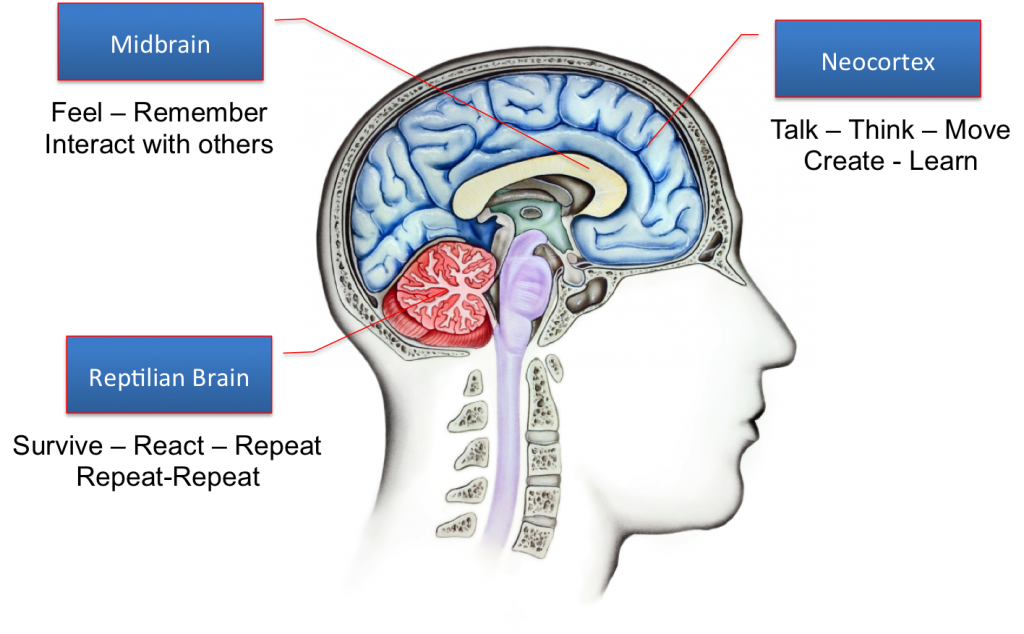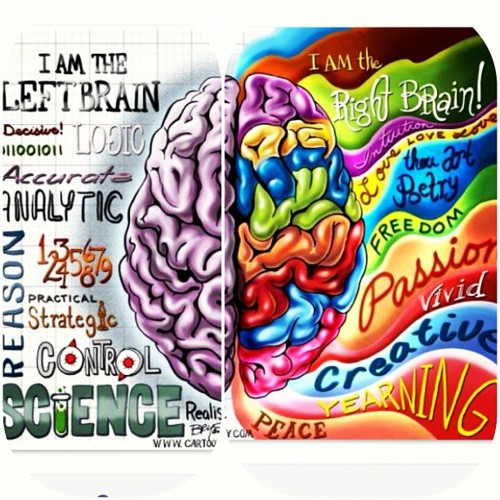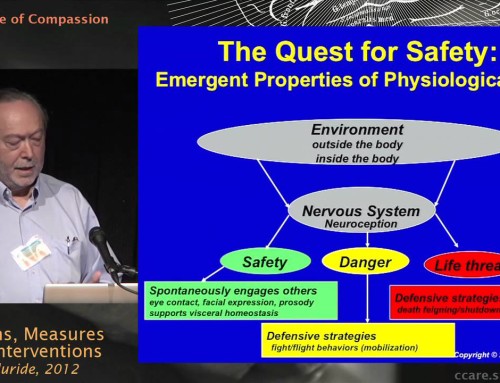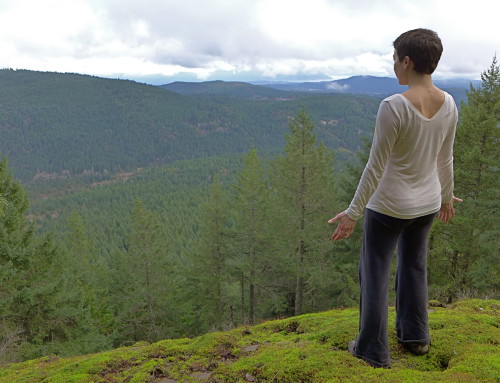“Get over it!” “Move on.” “Don’t look back.” These are some of the words of advice commonly heard by someone who is depressed, anxious, and/or suffering from trauma. Though well-intended, this advice is impossible to follow for someone who is in such a state. Why?
Normally we process information from the bottom up: the sensations and perceptions in the body—our “lived experience”—travels through nervous system to the brain stem, which makes a sensory “map” of the event, a “felt sense.” Next, the information travels up to the limbic system in the mid-brain. This is where we develop emotions about our experience. Next up, the information moves to the highest level of the brain, the cortex, and we reflect on the experience.
There is also a right-left integration process between the two hemispheres of the brain. Once we process our experience through the layers of the right hemisphere, we shunt it over to the left hemisphere, where rational thinking prevails, and we make meaning of our experience. Now we have a memory of the event that we can access and talk about, and it makes sense in the story of our lives.
However, when we experience something that is “too much too fast,” our normal integration process gets interrupted. We are unable to “digest” the experience through the three layers and the two sides of the brain. Usually in the case of trauma, the event gets stuck in the sub-cortical (lower) levels of the right hemisphere and never gets processed any further. It is the psyche’s way of protecting us from the horror and terror of the event, but this protection comes with a heavy price: the lack of integration results in a sense that the traumatic event is always ongoing, even if it happened thirty years ago.
So, in order to “get over it,” a person must not “move on,” but instead must go back to the raw fragments of the original experience, and allow the body and the brain to process and integrate the sensations, emotions, and meaning of what happened. This requires great courage and strong support– and it is well worth the effort.






